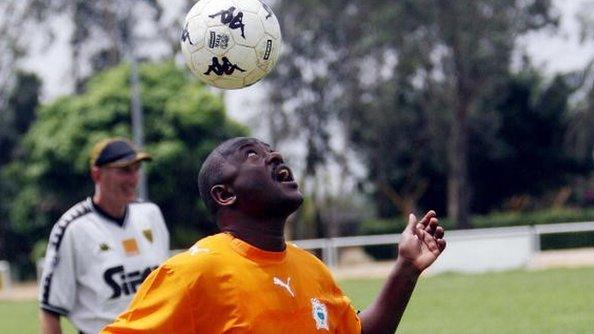Has African Union let down Burundi?
- Published
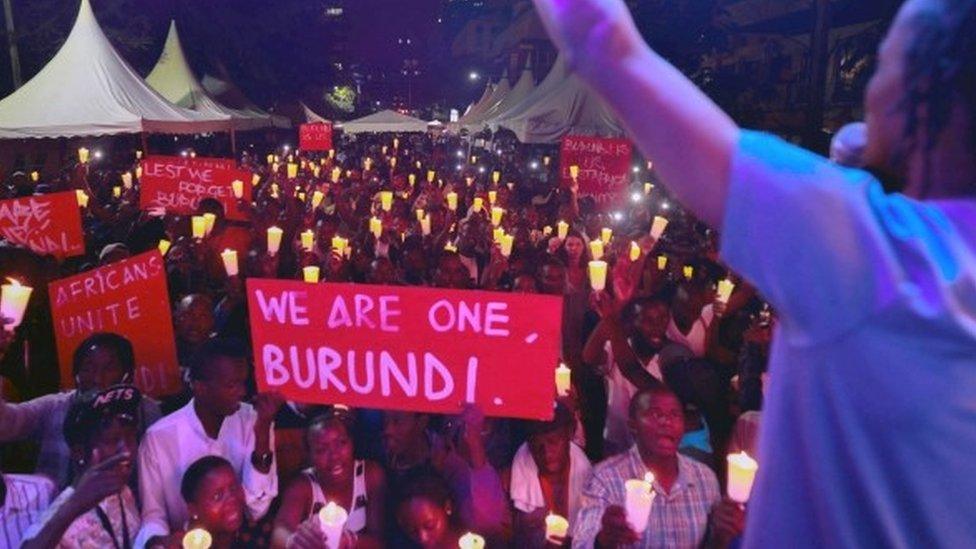
The African Union has opted for more talks to help solve the Burundi crisis
African solutions to African problems is the mantra, but when it came to trying to sort out the situation in Burundi, heads of state have pulled back from taking decisive action.
In December the African Union's Peace and Security Council was unequivocal in its condemnation of the violence in Burundi and pledged to send a 5,000-strong peacekeeping force, regardless of what the government thought.
But just over a month later, AU leaders at this weekend's meeting in Addis Ababa abandoned those plans and instead opted to send a delegation to hold talks.
Commissioner for Peace and Security Council Smail Chergui explained why.
"We want dialogue with the government, and the summit decided to dispatch a high-level delegation," he said.
Burundi's President Pierre Nkurinziza, whose third-term bid began the recent bout of trouble, has always been opposed to the troop deployment.
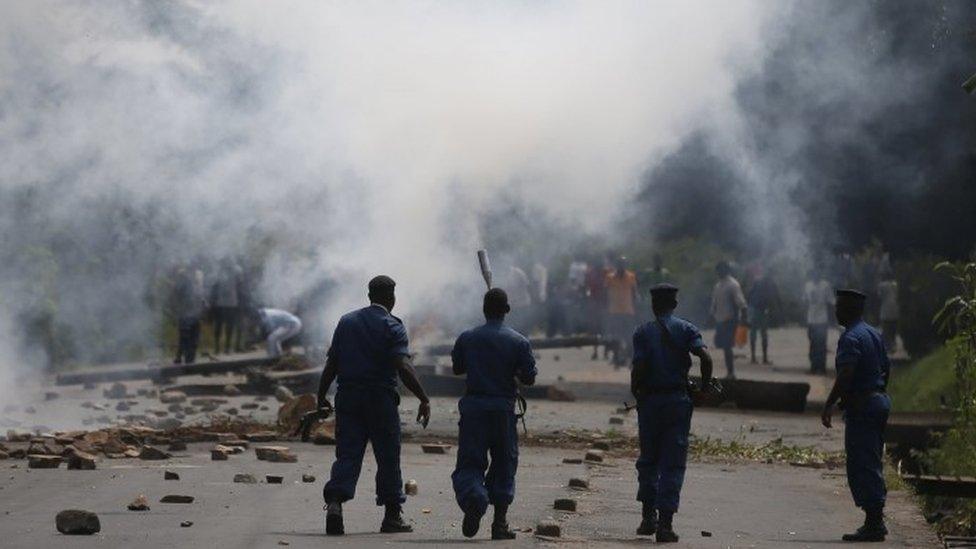
The AU's Peace and Security Council had expressed concern that the violence in Burundi could spiral out of control
The AU could have deployed troops without Burundi's consent as under its charter there is a clause that allows it to intervene in a member state because of grave circumstances, which include war crimes, genocide and crimes against humanity.
However, it would have been the first time it had taken such a step.
Senior AU diplomat Ibrahima Fall said such a move would have been "unimaginable".
So the idea of African solutions to African problems seems to be stalling here.
Stephanie Wolters, from the Pretoria-based Institute of Security Studies, told me that this was a setback for the AU.
She said "this is a sign that African heads of state are not ready to set a precedent to intervene without the consent of the host government".
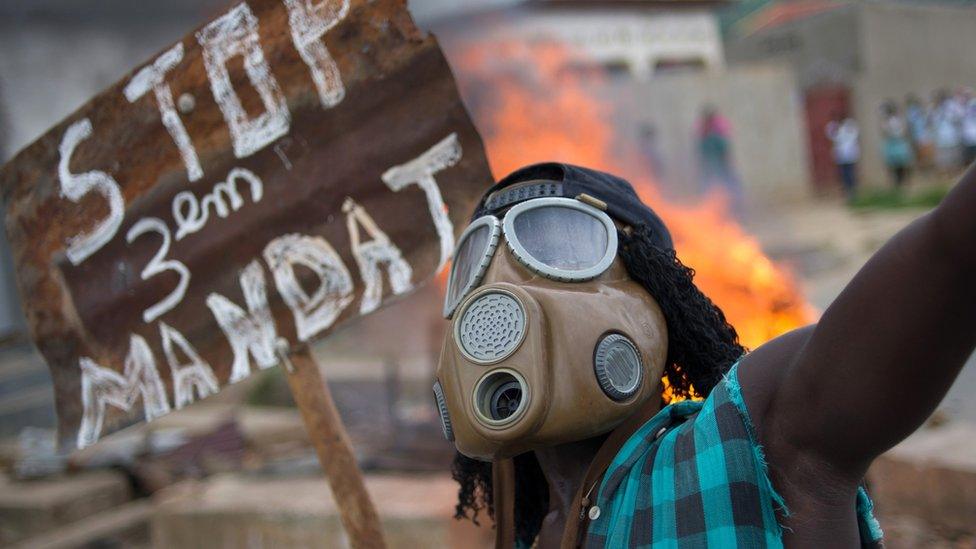
The AU hopes that further dialogue could help resolve the tensions in Burundi
"The heads of state threw out a decision that was approved by their very own ambassadors," she emphasised.
The move not to send troops to Burundi suggests that it is going to take a long time before the AU can assert itself and distinguish itself from the lethargic Organisation of African Unity (OAU).
I was in Durban at the AU's inaugural summit in 2002 when then-South African President Thabo Mbeki, who was also AU chairman, set out his vision for the new organisation which emerged from the OAU.
"Together we must work for peace, security and stability for the people of this continent," he said.
"We must end the senseless conflicts and wars on our continent which have caused so much pain and suffering to our people."
Many here on the continent hope that this this U-turn will not mean another senseless conflict breaks out of the type which President Mbeki spoke so eloquently about.
The ordinary Burundian will hope that the AU delegation will indeed avert what some fear could become a new civil war.

Burundi's deepening crisis
April 2015: Protests erupt after President Pierre Nkurunziza announces he will seek a third term in office.
May 2015: Constitutional court rules in favour of Mr Nkurunziza, amid reports of judges being intimidated. Tens of thousands flee violence amid protests.
May 2015: Army officers launch a coup attempt, which fails.
July 2015: Elections are held, with Mr Nkurunziza re-elected. The polls are disputed, with opposition leader Agathon Rwasa describing them as "a joke"
November 2015: Burundi government gives those opposing President Nkurunziza's third term five days to surrender their weapons ahead of a promised crackdown.
November 2015: UN warns it is less equipped to deal with violence in Burundi than it was for the Rwandan genocide.
December 2015: 87 people killed on one day as soldiers respond to an attack on military sites in Bujumbura.
December 2015: African Union's Peace and Security Council ledges to send a 5,000-strong peacekeeping force into Burundi
January 2016: Amnesty International publishes satellite images, external it says are believed to be mass graves close to where December's killings took place
Janyary 2016: African Union heads of state row back on the peacekeeping force and agree to send a delegation to Burundi
- Published8 January 2016
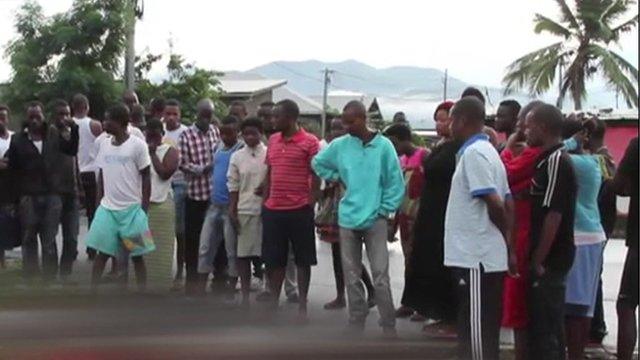
- Published2 December 2015
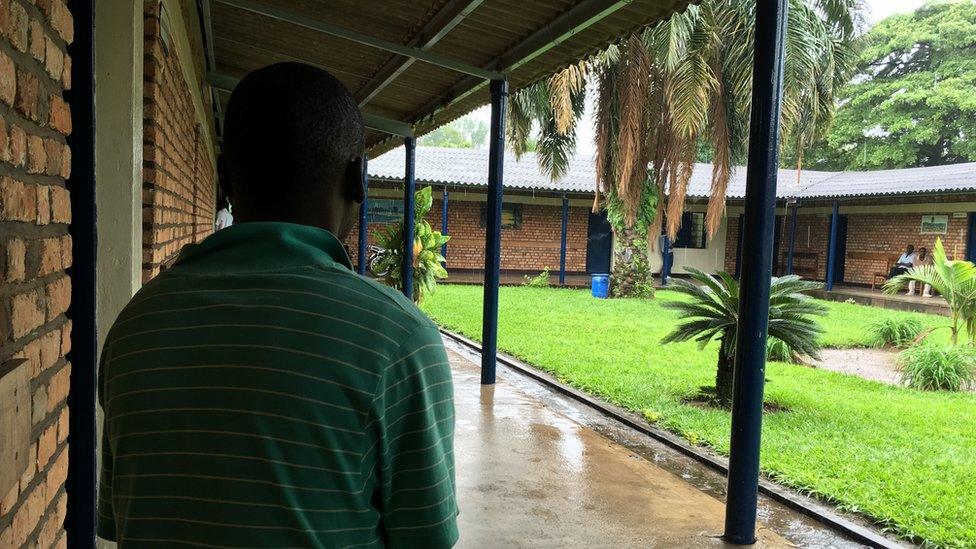
- Published3 November 2015
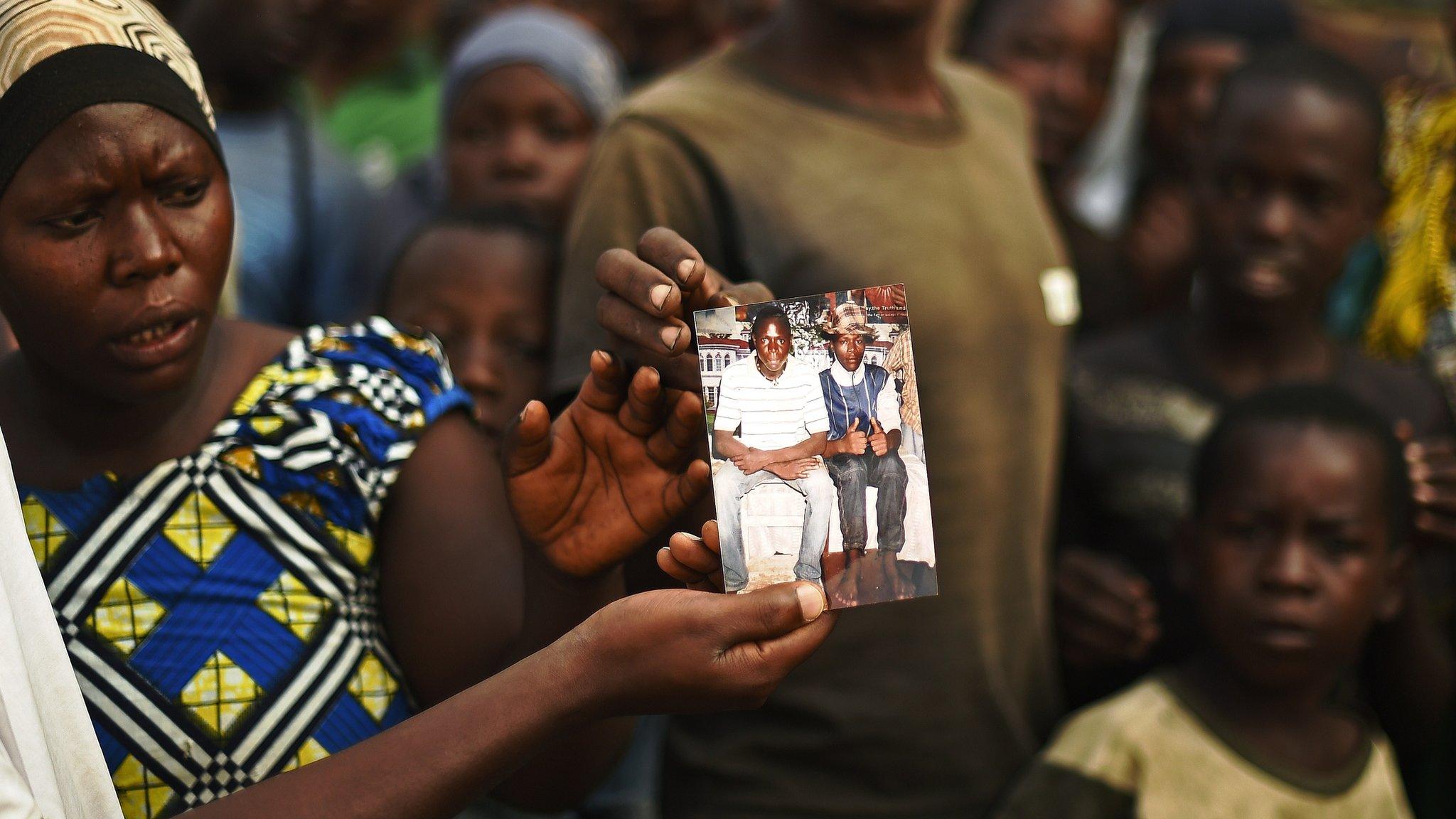
- Published14 October 2015
